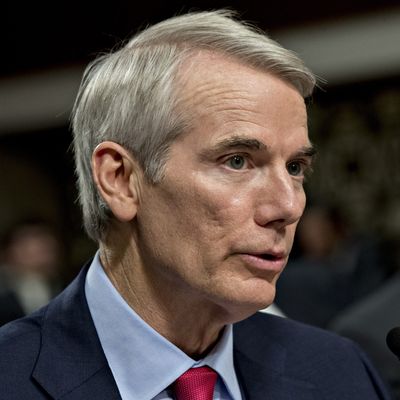
One of the persistently frustrating things about the saga of the American Health Care Act has involved its extremely important Medicaid provisions. In the House debate, you barely ever heard about Medicaid, so intensive was the discussion of the individual insurance market and rules governing people with preexisting conditions.
But as the Senate has taken up its version of Obamacare repeal-and-replacement legislation, it looked like Senate “moderates” would finally focus on the nation’s huge federal-state program for providing low-income people with health coverage.
It is important to understand, however, that there are two different Medicaid issues to cope with in looking at the American Health Care Act, as ThinkProgress recently explained:
The House Republican plan would end the Affordable Care Act’s eligibility expansion, erasing the guaranteed federal money states used to insure those 11 million people. At the same time, the bill would change how Medicaid funding works across the entire system, regardless of where beneficiaries live. The radical change to funding rules would threaten coverage for the other 63 million people who are signed up to Medicaid under pre-expansion eligibility rules.
The latter change basically eliminates Medicaid as an “entitlement” that provides predictable federal funding for state-identified beneficiaries.
The House Republican plan would disburse Medicaid payments based on an automated formula tied to enrollment levels rather than to actual health care spending. That formula would lock in a permanent definition of what it costs to cover a Medicaid patient for a year, and then set future federal payments based on Medicaid enrollment figures from the beginning of 2020.
This per capita cap is a big, permanent change in Medicaid that could potentially become much larger in the future if the federal government succumbs to the temptation of ratcheting down per capita allocations to the states on grounds that it is now “their” program, not Washington’s. And it will affect every state, not just the 31 that have expanded Medicaid eligibility under Obamacare.
More immediately, the per capita cap proposal accounts for nearly 10 million of the 14 million people the Congressional Budget Office estimated would lose Medicaid eligibility under the original AHCA.
So is this what Senate “moderates” are fighting? No, not really, as The Hill explains in a piece on the two-senator Medicaid working group, composed of Rob Portman of Ohio and Pat Toomey of Pennsylvania, that Mitch McConnell set up to reach consensus. Portman, supposedly the bulldog protecting Medicaid, clearly cares more about the Medicaid expansion than the per capita cap.
The thorniest issue appears to be the Medicaid expansion … [T]he Senate is working off the assumption that there will be a cap on federal Medicaid payments, known as a per capita cap, according to lobbyists and aides.
There’s even talk that the “moderates” could agree to a deal that trades a lower long-term cap for a higher short-term accommodation of the expansion. And the relative lack of “moderate” interest in the cap is not confined to Portman: West Virginia’s Shelley Moore Capito, another Medicaid-focused Republican, told a reporter she’s fine with imposing a long-term spending cap.






























